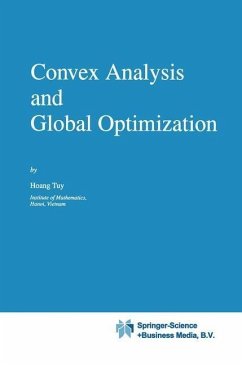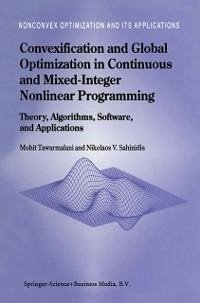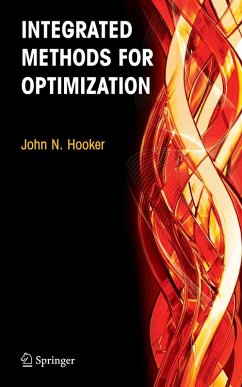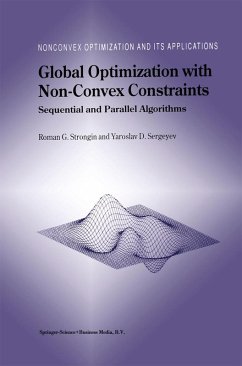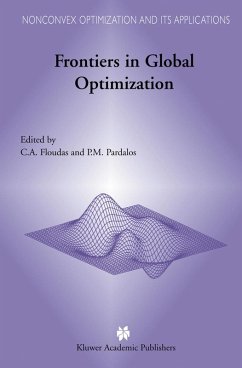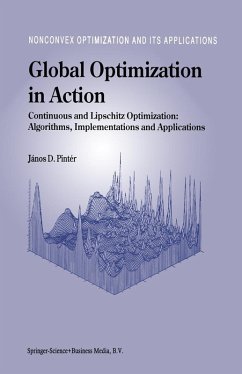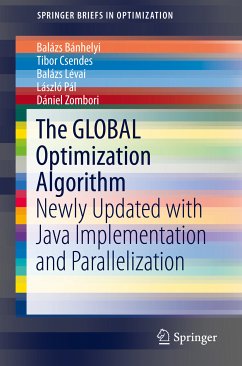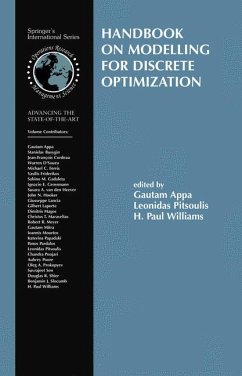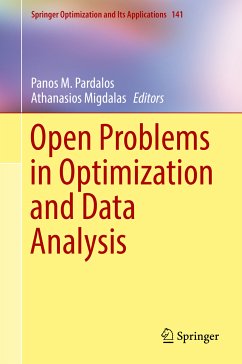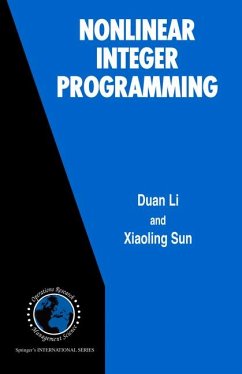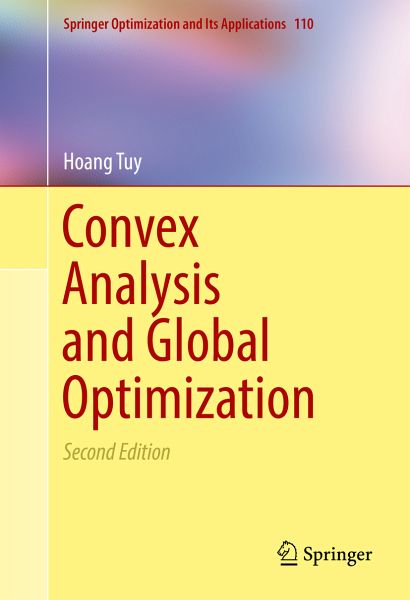
Convex Analysis and Global Optimization (eBook, PDF)
Versandkostenfrei!
Sofort per Download lieferbar
80,95 €
inkl. MwSt.
Weitere Ausgaben:

PAYBACK Punkte
40 °P sammeln!
This book presents state-of-the-art results and methodologies in modern global optimization, and has been a staple reference for researchers, engineers, advanced students (also in applied mathematics), and practitioners in various fields of engineering. The second edition has been brought up to date and continues to develop a coherent and rigorous theory of deterministic global optimization, highlighting the essential role of convex analysis. The text has been revised and expanded to meet the needs of research, education, and applications for many years to come.Updates for this new edition inc...
This book presents state-of-the-art results and methodologies in modern global optimization, and has been a staple reference for researchers, engineers, advanced students (also in applied mathematics), and practitioners in various fields of engineering. The second edition has been brought up to date and continues to develop a coherent and rigorous theory of deterministic global optimization, highlighting the essential role of convex analysis. The text has been revised and expanded to meet the needs of research, education, and applications for many years to come.
Updates for this new edition include:
· Discussion of modern approaches to minimax, fixed point, and equilibrium theorems, and to nonconvex optimization;
· Increased focus on dealing more efficiently with ill-posed problems of global optimization, particularly those with hard constraints;
· Important discussions of decomposition methods for specially structured problems;
· A complete revision of the chapter on nonconvex quadratic programming, in order to encompass the advances made in quadratic optimization since publication of the first edition.
· Additionally, this new edition contains entirely new chapters devoted to monotonic optimization, polynomial optimization and optimization under equilibrium constraints, including bilevel programming, multiobjective programming, and optimization with variational inequality constraint.
From the reviews of the first edition:
The book gives a good review of the topic. ...The text is carefully constructed and well written, the exposition is clear. It leaves a remarkable impression of the concepts, tools and techniques in global optimization. It might also be used as a basis and guideline for lectures on this subject. Students as well as professionals will profitably read and use it.-Mathematical Methods of Operations Research, 49:3 (1999)
Updates for this new edition include:
· Discussion of modern approaches to minimax, fixed point, and equilibrium theorems, and to nonconvex optimization;
· Increased focus on dealing more efficiently with ill-posed problems of global optimization, particularly those with hard constraints;
· Important discussions of decomposition methods for specially structured problems;
· A complete revision of the chapter on nonconvex quadratic programming, in order to encompass the advances made in quadratic optimization since publication of the first edition.
· Additionally, this new edition contains entirely new chapters devoted to monotonic optimization, polynomial optimization and optimization under equilibrium constraints, including bilevel programming, multiobjective programming, and optimization with variational inequality constraint.
From the reviews of the first edition:
The book gives a good review of the topic. ...The text is carefully constructed and well written, the exposition is clear. It leaves a remarkable impression of the concepts, tools and techniques in global optimization. It might also be used as a basis and guideline for lectures on this subject. Students as well as professionals will profitably read and use it.-Mathematical Methods of Operations Research, 49:3 (1999)
Dieser Download kann aus rechtlichen Gründen nur mit Rechnungsadresse in A, B, BG, CY, CZ, D, DK, EW, E, FIN, F, GR, HR, H, IRL, I, LT, L, LR, M, NL, PL, P, R, S, SLO, SK ausgeliefert werden.



